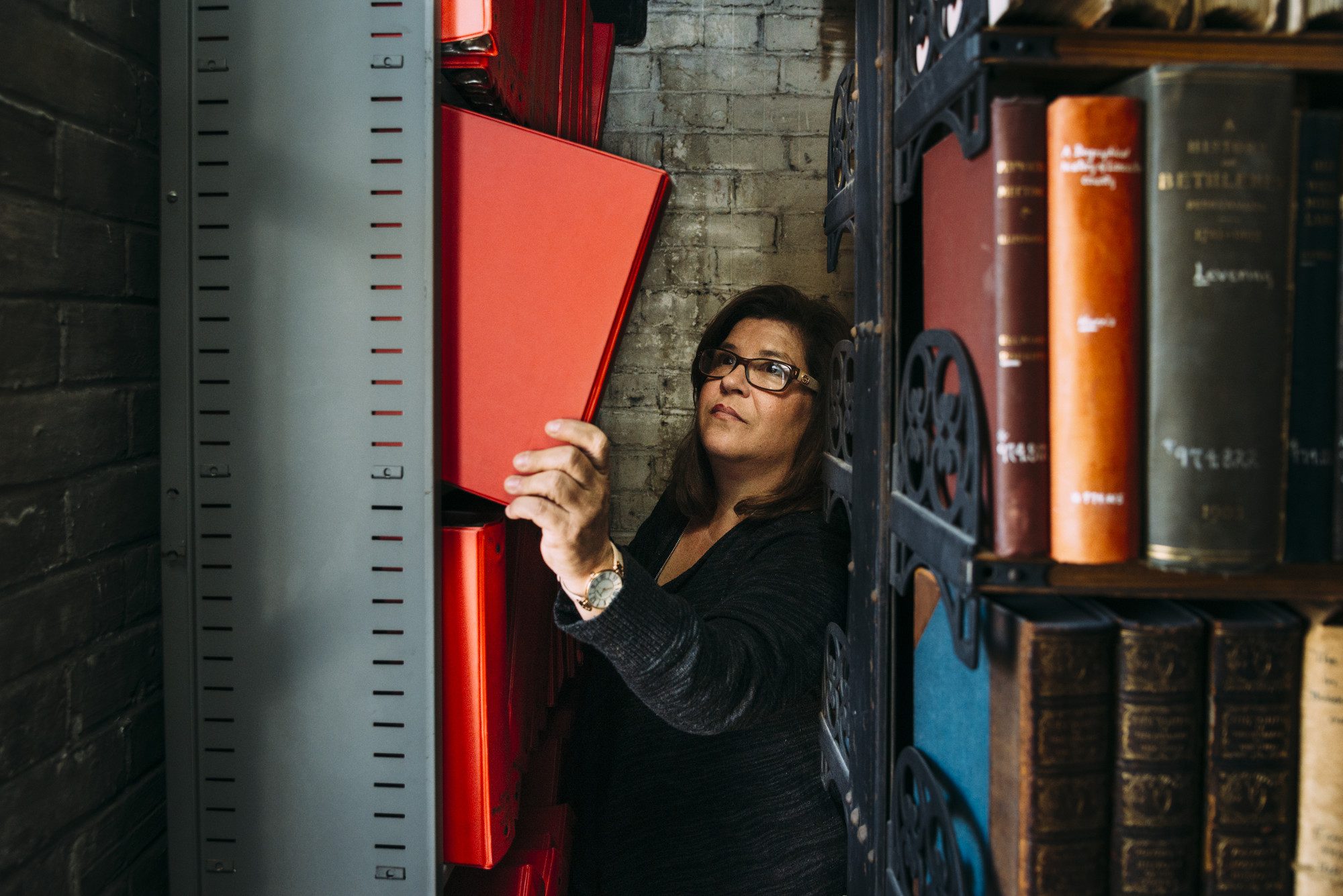LYNN — Long-dead public library lovers ranging from a show tune composer to a newsman and wealthy industrialist bequeathed money in their wills to the library that continues to benefit from it.
Thirty-six trusts totaling $590,000 and ranging in size from a quarter million dollars to a few hundred dollars generate on average $11,000 in interest income annually for the library.
Some were set up in the 1990s but most of the trusts date back to the years after the construction of Lynn’s Renaissance Revival-style library opened a floodgate of giving to the new institution.
“This library being established was a big deal,” said Chief Librarian Theresa Hurley.
Hurley manages 16 employees and a $1 million budget, but her true love is digging into the library’s rich history collection. She has uncovered wills and carefully-preserved newspaper clippings detailing early trust donations to the library.
Knowing that some Lynn residents might not be able to trek down to the North Common Street library, Lucy Ann Mudge established a $5,000 trust in 1921 “devoted to the purchase of books for the Traveling library collection.”
Elizabeth Shute set aside $10,000 in an 1893 trust to maintain a library reading room “where young men can have access to daily, weekly and monthly publications.” Shute, the wife of Lynn industrialist William Shute, looms large in the gallery of library benefactors. She left $100,000 in her will to the library and the sum covered half the cost of building the library, which opened in 1900.
Entrepreneur Benjamin Johnson and his son, Romilly Johnson, also loom large among benefactors. Romilly wrote music for theater under the name of George Romilly in partnership with George Bagby. With Romilly’s death in 1929, Bagby become the executor of Romilly’s estate and in 1963, when the last of Romilly’s relatives died, the library received $300,000 from the Johnson estate with the restriction that only interest earned on the trust could benefit the library.
Hurley said trust earnings paid for her travel and expenses and a colleague’s when they went to a Chicago conference in 2016. When the library sustained severe spending cuts 20 years ago, trust money helped it continue to purchase books.
She said the trusts reflect an enduring love for the library by people who valued learning and appreciated how the library’s construction opened up a gold mine of knowledge for Lynn residents.
“The library was really the only place to go to seek information,” Hurley said.
Before the North Common Street building’s construction, the library occupied a room in the former Lynn City Hall. Readers in the 19th century were required to pay an annual 50 cent share and “be in good moral standing” to use the “social library.”
Some trusts established over the years are of the more modest variety. General Electric provided $1,000 in 1920 to purchase foreign language books and the estate of newsman Edward McDonough provided $1,000 in 1993 for the purchase of books on journalism.
Hurley has not seen a trust established since she became chief librarian in 2011, but she said donations ranging from “a few hundred dollars to a couple thousand” are made to the library every year. She said the generosity of Elizabeth Shute and Romilly Johnson may yet grace the library again.
“I’ve got fingers crossed that one of those little kids I had in storytime will become a millionaire,” she said.

